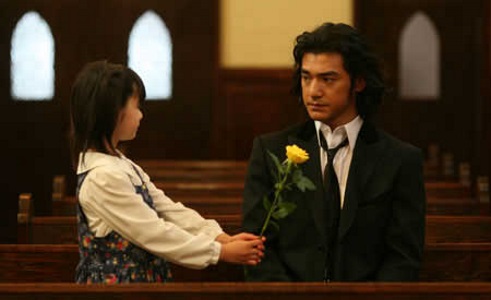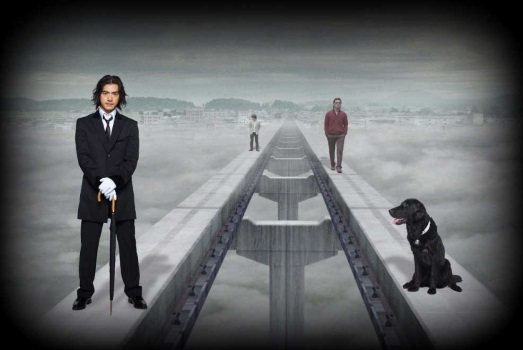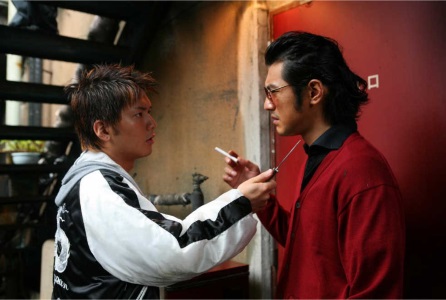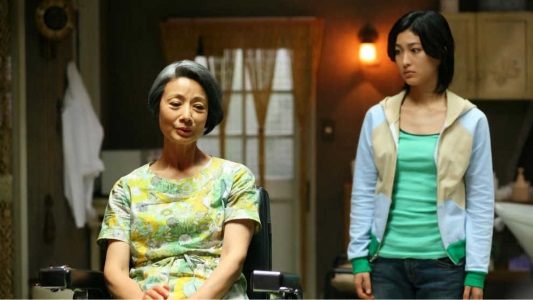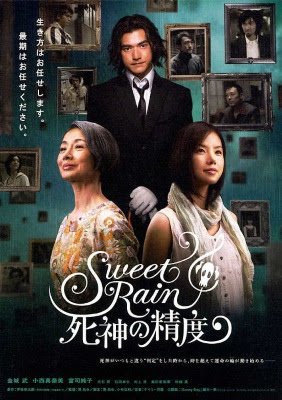Sweet Rain: Accuracy of
Death
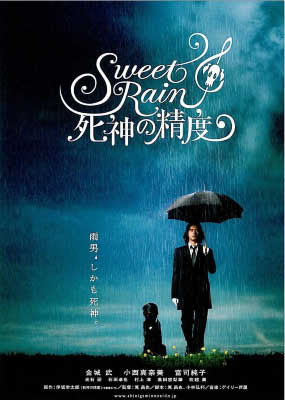
Director: Masaya
Kakehi
Year:
2008
Rating: 7.5
Here is a job that I would be very bad at. Grim
Reaper. The Grim Reapers in this film have to spend time with their assigned
target to determine if they should live or die. Proceed or Suspend. I am
such a softie that I would likely decide Suspend for everyone but serial
killers and MAGAs. And if the serial killers had some beneficial characteristics,
I might have to re-think my judgement. In the opening scene a man in a black
suit and somber appearance enters a church and sits next to a ten-year old
girl. They are at a funeral. The girl turns to him and asks if he is the
Grim Reaper. He assents. Why did you take a child? We don't kill anyone.
We just decide. The child had fulfilled its purpose. It is time to go. She
nods and the mourners part to allow us to see the photo of the dead child.
It is the girl. She gets up and the two walk off into the unknown.
